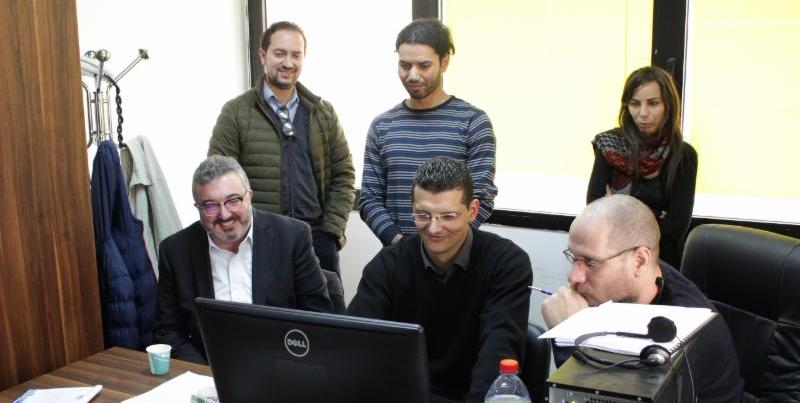Tunisia: Using Open Data to Advance Government Transparency

FSVC is helping the Tunisian government implement Open Government Data policies to promote transparency of government information; Tunis, Tunisia, February 2018.
FSVC implemented several projects in February to support the disclosure of government information in Open Government Data (OGD) formats to help strengthen public transparency and accountability in Tunisia. OGD is an international philosophy and approach to improving public availability of government information. OGD enables people to use, reuse and distribute freely datasets to hold their governments accountable for public expenditures.
To help the Tunisian government transition to an OGD format, FSVC volunteer experts met with several government institutions, including the E-Gov unit, the Ministry of Transport, the Tunisian Office of Trade and several municipalities located in the inner regions of the country. During these consultations, FSVC first identified several datasets and then established a migration plan on how to convert them into OGD formats.
These “Open” formats are critical for enhancing public access to government information. OGD increases transparency and open governance, creates an environment of collaboration and trust between citizens and their governments, and helps measure the impact of public policies through data analysis.
FSVC’s program (called “Onshor”, which means “Disclose” in Arabic) is funded by the Middle East Partnership Initiative (MEPI) at the U.S. Department of State.
Swaziland: Strengthening Civil Society Engagement

In February, FSVC delivered its first project in Swaziland to strengthen the capacity of civil society organizations (CSOs) to advocate on behalf of citizens for budget reforms and increased government accountability.
Swaziland is an absolute monarchy, where citizens traditionally have had little civic engagement on budget and policy issues. In 2017, Swaziland scored only 3/100 on the International Budget Partnership’s Open Budget Survey, an independent, comparative assessment of three pillars of public budget accountability: transparency, oversight and public participation. To help address these issues, the Co-ordinating Assembly of NGOs (CANGO) requested training in budget and expenditure monitoring. CANGO is a local organization that has made progress in recent years by strengthening civil society and coordinating advocacy efforts in Swaziland.
To increase civic engagement, FSVC volunteer experts Brenda Morrison (Partner at Engaged Public) and Phyllis Resnick (Lead Economist for the Colorado Futures Center at Colorado State University) traveled to Mbabane, Swaziland, to train representatives from CANGO in collecting data on budget issues and analyzing research results. The volunteer experts also guided participants on how to translate their findings into reports suitable for policymakers and the general public. This project was an important first step toward building the capacity of CSOs to more effectively advocate on behalf of citizens, and engage the government to influence policymaking decisions regarding budget priorities.
FSVC’s work in Swaziland is made possible by a grant from the U.S. Agency for International Development (USAID).
Two New Members Elected to FSVC’s Board
|
|
Adam Szubin (left) and Eunice Panetta join FSVC’s Board of Directors.
Earlier this year, Mr. Adam Szubin and Ms. Eunice Panetta were elected to FSVC’s Board of Directors. Mr. Szubin is currently Of Counsel at Sullivan & Cromwell LLP, where he focuses his practice on financial services and national security. Previously he served as Acting Under Secretary for Terrorism and Financial Intelligence at the U.S. Department of the Treasury. Ms. Panetta is currently the Vice Chair of the Board of the Trustees of Reservations, and previously worked for over 15 years in long-short equity.
Regarding their recent election, FSVC President and CEO Andrew Spindler stated, “Adam and Nicie have both been outstanding supporters of FSVC’s work over a number of years. Together they possess immense public and private sector experience, which will be extremely valuable in helping to guide FSVC’s strategic mission going forward.” For more information, click here.

